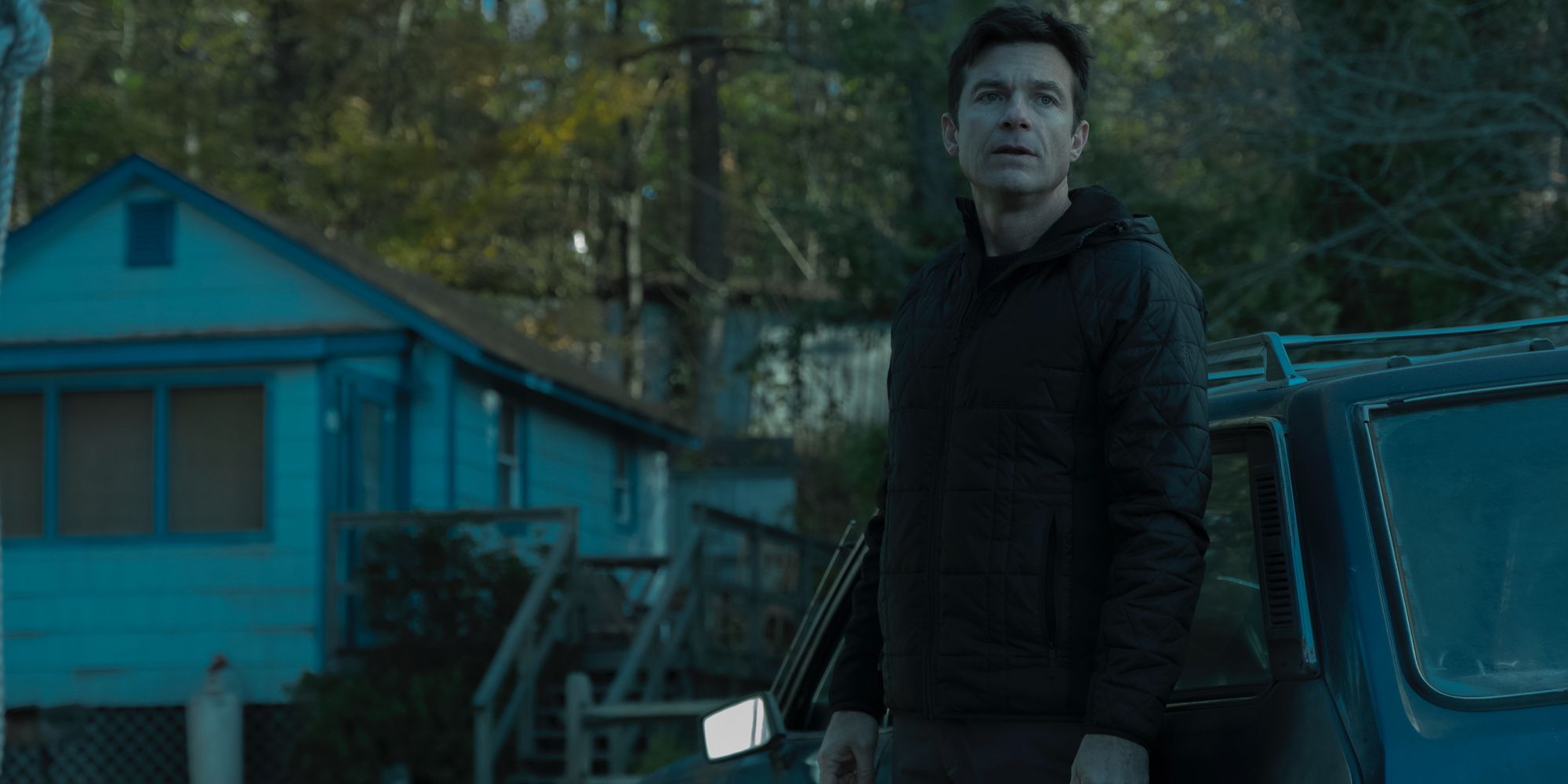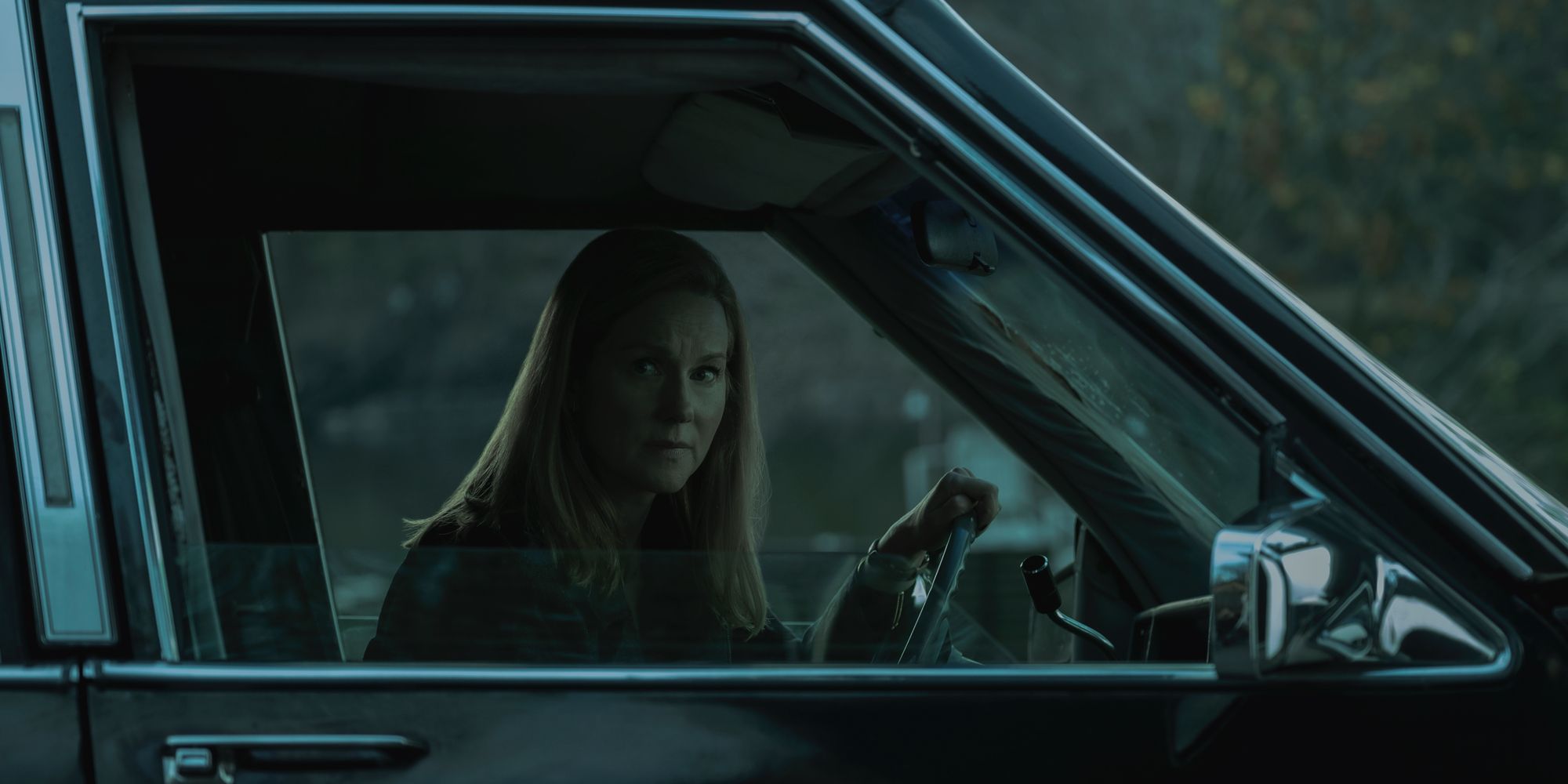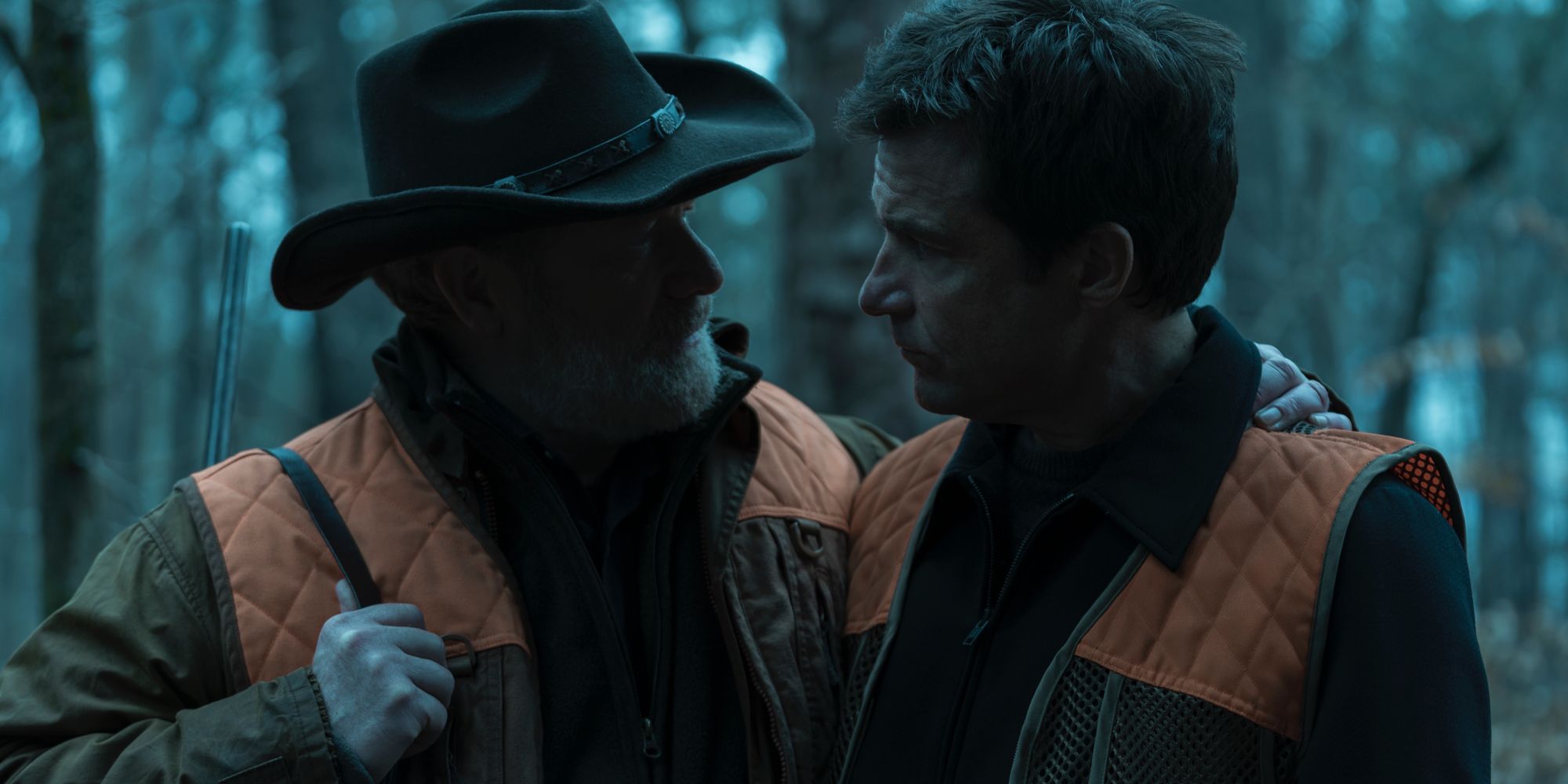
Ozark is a bleak show, a classification the Netflix series took an almost perverse pleasure in living up to over the course its slow, oftentimes relentlessly dour first season. Season 2 is by no means a picnic, but the crime drama, starring Jason Bateman and Laura Linney, has learned to lighten up on occasion, as the Byrde family continues to launder its way through a small portion of the region from which the series gets its title. That’s a step in the right direction, as Ozark continues to rely on problem hopping as a means of generating narrative thrust. As such, moments of levity breathe some life into a story about a corrupt family in way over their heads, and make watching the series feel less like doing crime fiction arithmetic.
The series, created by Bill Dubuque (The Accountant) with Chris Mundy (Low Winter Sun) serving as head writer, garnered recognition for its superficial similarities to Breaking Bad. That is, a seemingly average middle-class family is wrapped up in the business of drug cartels, making their otherwise suburban lives far less conventional (and a whole lot darker) than they appear. Dubuque’s persistent interest in the murky lives of CPAs aside, Ozark, to its credit, proved it wasn’t really interested in retracing Walter White’s footsteps. Instead, it used the whole of Breaking Bad as its ostensible starting point, leaving Marty (Bateman) and Wendy (Linney) Byrde, and their two children, Charlotte (Sofia Hublitz) and Jonah (Skylar Gaertner), neck deep in the consequences of a long line of poor decisions, and subsequently scrambling to save their lives on an almost daily basis.
More: Fall 2018 TV Premiere Dates: All The New & Returning Shows To Watch
What makes Ozark notable (if not exactly sensational) is in how it trades the potential tension of familial secrets for a policy of total transparency. The series doesn’t pin its dramatic hopes on the revelation of, say, a character finding out their father is laundering millions of dollars for a drug cartel. Instead the show mines most of its drama from the Byrde family’s reactions to how the goalposts of normalcy continue to move, on account of their extraordinary circumstances. In other words, the functional dysfunction of Marty, Wendy, Charlotte, and Jonah — and, sure, terminally ill tenant, Buddy (Harris Yulin), too — is intended to be the bright, beating heart of this otherwise grimdark series.

In season 2 there is a sense that, much like its central characters, Ozark has leveled off and settled into what is now the new normal. As a result, there’s a noticeable lack of the urgency, unfamiliarity, and unpredictability that drove so much of season 1. A lot of that has to do with how little the show’s supporting cast has changed, and the degree to which their relationships with Marty and his family have put them deeper in business with one another. Aligning the interests of the Byrdes with the Snells — Jacob (Peter Mullan) and Darlene (Lisa Emery) — as well as the cartel, which is now represented by attorney Helen Pierce (Janet McTeer, Marvel’s Jessica Jones) in the wake of Del’s (Esai Morales) murder in the season 1 finale, puts the story’s emphasis on the business of crime.
The minutia of laundering millions of dollars for a ruthless drug cartel is compelling stuff, provided what you’re watching is an episode of Frontline. For a Netflix series, though, it may not be enough. So, as much as Ozark might like to watch Marty break out the ol’ calculator and cook the books for 10 straight episodes, the business of crime — on television, anyway — is one fraught with obstacles. Those obstacles, like politicians who’re against the casino Marty proposed as a way to get the Snells in bed with the cartel, or a Kansas City mobster with a contentious relationship to Buddy, all pretty much want the same thing: money. As such, there are few problems that Marty and Wendy can’t buy their way out of using the millions of dollars stashed away in the hotel they bought to solve another problem soon after arriving in their new home.
And before too long, this becomes business as usual, and the momentum the series had built during its propulsive season 1 finale begins to wane. In an effort to get things moving again, Ozark comes up with a host of new problems, in the form of new and returning characters, like Cade (Trevor Long), the recently paroled father of Ruth Langmore (series standout Julia Garner), and Charles Wilkes (Darren Goldstein) a political power broker who is, in many ways, the gatekeeper to the next phase of the Byrde family’s plan. Wilkes’ role blurs the already indistinct lines between capitalism and criminality, while Cade continues where his inept brothers left off last season, by seeing Marty as a get-rich-quick scheme he’s willing to kill to accomplish.

The echoes of season 1 reverberate throughout these new episodes, in part because season 2 is mostly interested in exploring the Byrdes' bizarre equilibrium, and the way they've begun acclimating to their present circumstances. The result, then, is partly a return to the sort of suburban tedium they left behind in Chicago, and, for Wendy at least, a kind of reappraisal that leads to a newfound commitment to Marty, and to the dark business she discovers she has a knack fore.
There is something appealing in watching the Byrde family find its “new baseline,” or, as Marty says, “build normal from here.” It would be more compelling if Ozark found more interesting angles from which to stir up the Byrdes' new normal. The ever-looming threat of the cartel or the FBI no longer generate much in the way of genuine tension, and as much as Julia Garner remains the series MVP, the problems caused by her father aren't nearly as interesting as her sudden middle-class dreams are.
The more Ozark continues to run with this particular story, the further it gets from its original conceit. It can be compelling to watch a show generate distance like that by deliberately settling its characters into an unconventional, but nevertheless tedious, existence. The implication, then, is that (body count and colorful characters aside) the monotonous day-to-day work of “making the donuts” would pretty much be the same for the Byrdes had Marty never broken bad. That’s not an altogether uninteresting idea, but over the course of season 2, it can sometimes be hard to tell whether or not Ozark agrees.
Next: Sharp Objects Finale Review: A Disturbing, Sometimes Vexing Conclusion
Ozark season 2 will stream on Netflix beginning Friday, August 31.
from ScreenRant - Feed https://ift.tt/2PnXC4l

No comments:
Post a Comment